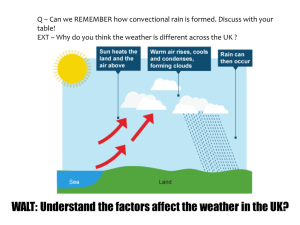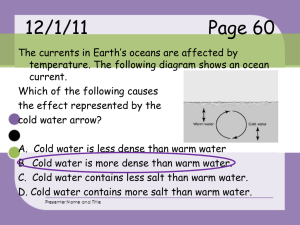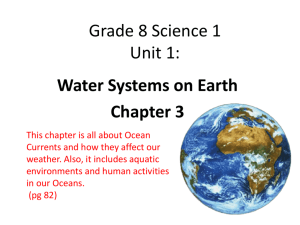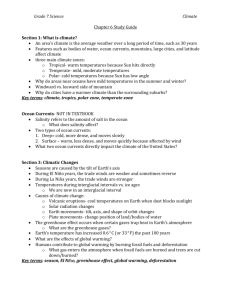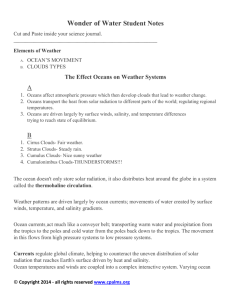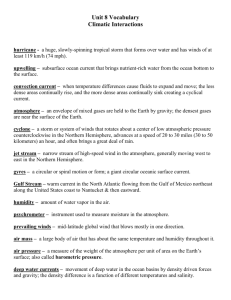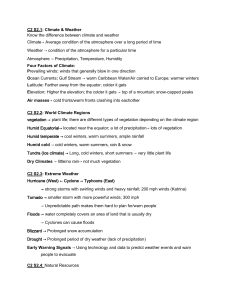The Oceans Affect on Climate
advertisement
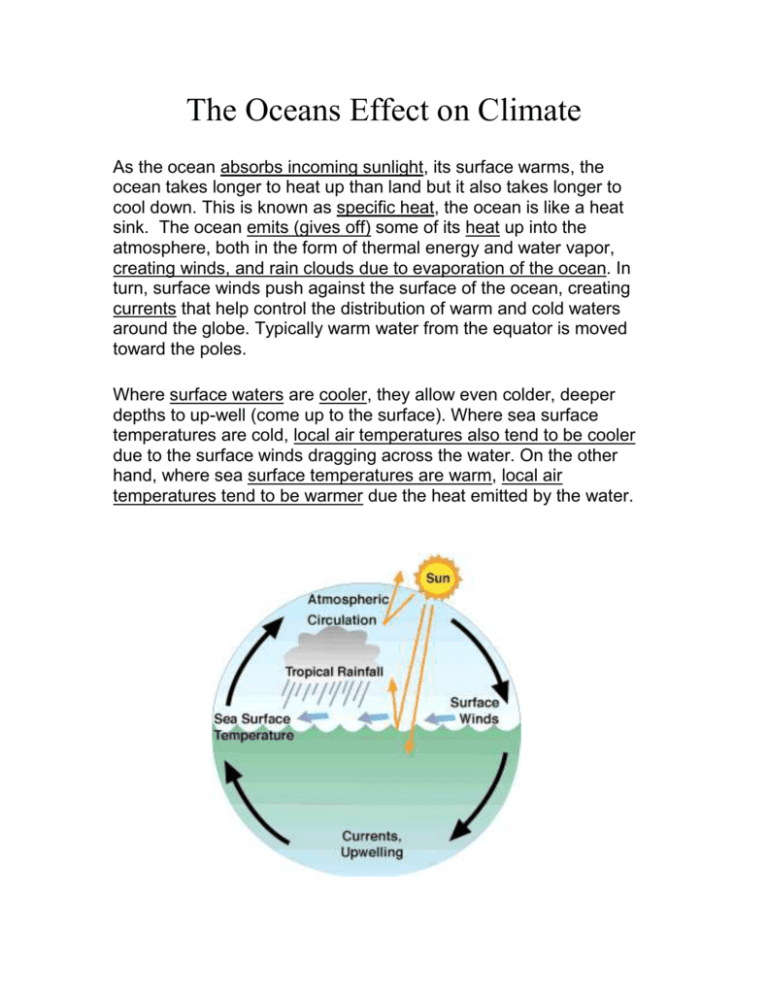
The Oceans Effect on Climate As the ocean absorbs incoming sunlight, its surface warms, the ocean takes longer to heat up than land but it also takes longer to cool down. This is known as specific heat, the ocean is like a heat sink. The ocean emits (gives off) some of its heat up into the atmosphere, both in the form of thermal energy and water vapor, creating winds, and rain clouds due to evaporation of the ocean. In turn, surface winds push against the surface of the ocean, creating currents that help control the distribution of warm and cold waters around the globe. Typically warm water from the equator is moved toward the poles. Where surface waters are cooler, they allow even colder, deeper depths to up-well (come up to the surface). Where sea surface temperatures are cold, local air temperatures also tend to be cooler due to the surface winds dragging across the water. On the other hand, where sea surface temperatures are warm, local air temperatures tend to be warmer due the heat emitted by the water.

